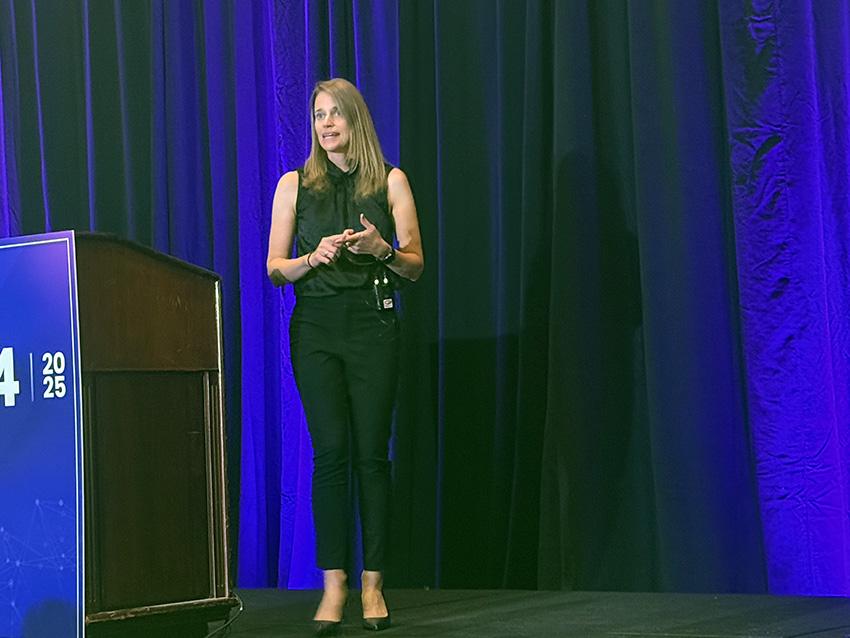Ai4 2025: Brooke Lorenz on Why AI Success Starts with People, Not Models
At Ai4 2025, Brooke Lorenz, Director of Market Research and Insights at DHI Group, Inc., delivered a solo talk titled “Finding the Right Talent in the AI Era,” warning that while companies are pouring millions into AI technology, many are neglecting the human expertise needed to make it work.
Lorenz opened with a scenario familiar to many in the audience: leadership teams eager to “invest more in AI” often focus on data, models, and infrastructure, but overlook the talent required to bring those systems to life. According to industry research she cited, nearly half of companies investing heavily in AI admit they lack the in-house expertise to operationalize it. Meanwhile, AI skills have rapidly become mainstream, appearing in nearly 40% of U.S. tech job postings, yet the supply of experienced practitioners has not kept pace with demand.
She outlined an “AI talent ecosystem” comprising three key groups. The first, “builders,” includes AI researchers, ML engineers, and data scientists — a small, highly competitive pool with long hiring cycles. The second, “orchestrators,” such as AI product managers and automation specialists, bridge business needs and technical capabilities and represent the fastest-growing segment. The third, “enhanced professionals,” includes existing developers, engineers, and even marketers leveraging AI tools like Copilot; this group, she stressed, is an untapped upskilling opportunity often ignored because AI isn’t in their job title.
Location trends in hiring, based on Lightcast labour market data, reveal California leading in total AI job postings but Texas and Minnesota posting the highest year-over-year growth. Demand is also rising beyond big tech, with industries like manufacturing, healthcare, aerospace, and consulting aggressively recruiting AI talent. Lorenz called this a “window of opportunity” for non-tech companies to attract candidates by meeting them where they are and showcasing what makes their organisation unique.
She also highlighted common hiring missteps. These include optimising for static job descriptions instead of evolving skill sets, rushing hiring into 30-day sprints unsuited to top candidates’ decision-making, and over-reliance on AI screening tools that erode trust. Her firm’s survey found 68% of tech professionals distrust fully AI-driven hiring, and nearly half would opt out if given the choice — a notable irony given these roles require AI expertise. Candidates, she noted, are equally likely to use AI in their own applications, creating a “conversation between AI tools” that recruiters must cut through with targeted, human-led engagement.
To win over top AI talent, Lorenz advised transparency about salary ranges, realistic requirements, and clear communication on how AI is used in hiring. Competitive compensation matters, but candidates also prioritise strategic impact, growth opportunities, flexibility, and the chance to work on meaningful projects. Retention hinges on similar factors: clear business impact, ongoing learning budgets, autonomy, and a culture of curiosity and ethical influence.
While some leaders assume they can’t compete with big tech, Lorenz’s research shows 71% of AI professionals are open to roles outside it. Undervalued industries such as manufacturing may have strong differentiators — like job stability — that, if effectively marketed, could give them an edge.
She closed with a reminder that AI strategy “doesn’t start with models; it starts with people.” The way companies hire shapes the teams that drive innovation. In a competitive market, trust and cultural alignment matter as much as technical skill, and the most effective hiring blends technology’s efficiency with the human connection that sustains long-term engagement.









